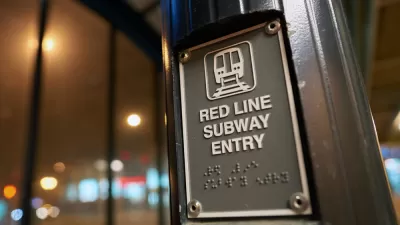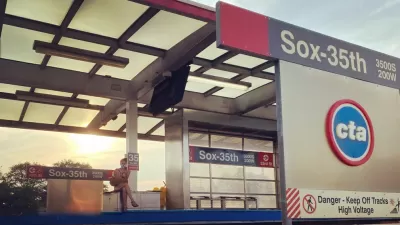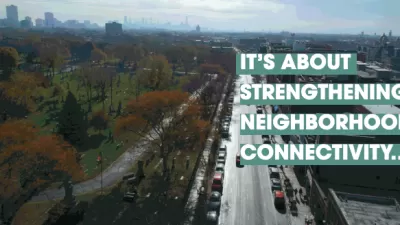Aaron Renn asserts that Chicago mayor Rahm Emmanuel's misuse of tax-increment financing dollars is hurting the city's poor.
Tax-increment financing (TIF), long considered a "mayoral slush fund" by Chicagoans, is seeing a new level of abuse under mayor Rahmn Emmanuel, according to Aaron Renn. Under the program, increased tax revenue in a given district (i.e. the "increment" in TIF) is fed back into said district in an effort to redevelop blighted areas through strategies like bond financing, infrastructure investment, or new development projects. However, Renn writes, Mayor Emmanuel is directing the funds towards amenities like bike lanes, riverfront trails and High-Line imitators even as budgets for libraries and mental health services are slashed.
Renn writes:
"None of the taxes from new developments in these districts flows automatically to police, libraries, parks, or schools...Some TIF funds have been used for construction of new schools, but more than half have been handed out as subsidies to private businesses. The true purpose of Chicago’s TIF districts—which now take in about $500 million per year—appears to be tending to high-end residents, businesses, and tourists, while insulating them from the poorer segments of the city."
Instead of catering to the "1 percent," Renn concludes, Chicago should focus on expanding opportunity for all residents.
FULL STORY: Well-Heeled in the Windy City

Planetizen Federal Action Tracker
A weekly monitor of how Trump’s orders and actions are impacting planners and planning in America.

Maui's Vacation Rental Debate Turns Ugly
Verbal attacks, misinformation campaigns and fistfights plague a high-stakes debate to convert thousands of vacation rentals into long-term housing.

San Francisco Suspends Traffic Calming Amidst Record Deaths
Citing “a challenging fiscal landscape,” the city will cease the program on the heels of 42 traffic deaths, including 24 pedestrians.

Amtrak Rolls Out New Orleans to Alabama “Mardi Gras” Train
The new service will operate morning and evening departures between Mobile and New Orleans.

The Subversive Car-Free Guide to Trump's Great American Road Trip
Car-free ways to access Chicagoland’s best tourist attractions.

San Antonio and Austin are Fusing Into one Massive Megaregion
The region spanning the two central Texas cities is growing fast, posing challenges for local infrastructure and water supplies.
Urban Design for Planners 1: Software Tools
This six-course series explores essential urban design concepts using open source software and equips planners with the tools they need to participate fully in the urban design process.
Planning for Universal Design
Learn the tools for implementing Universal Design in planning regulations.
Heyer Gruel & Associates PA
JM Goldson LLC
Custer County Colorado
City of Camden Redevelopment Agency
City of Astoria
Transportation Research & Education Center (TREC) at Portland State University
Jefferson Parish Government
Camden Redevelopment Agency
City of Claremont





























